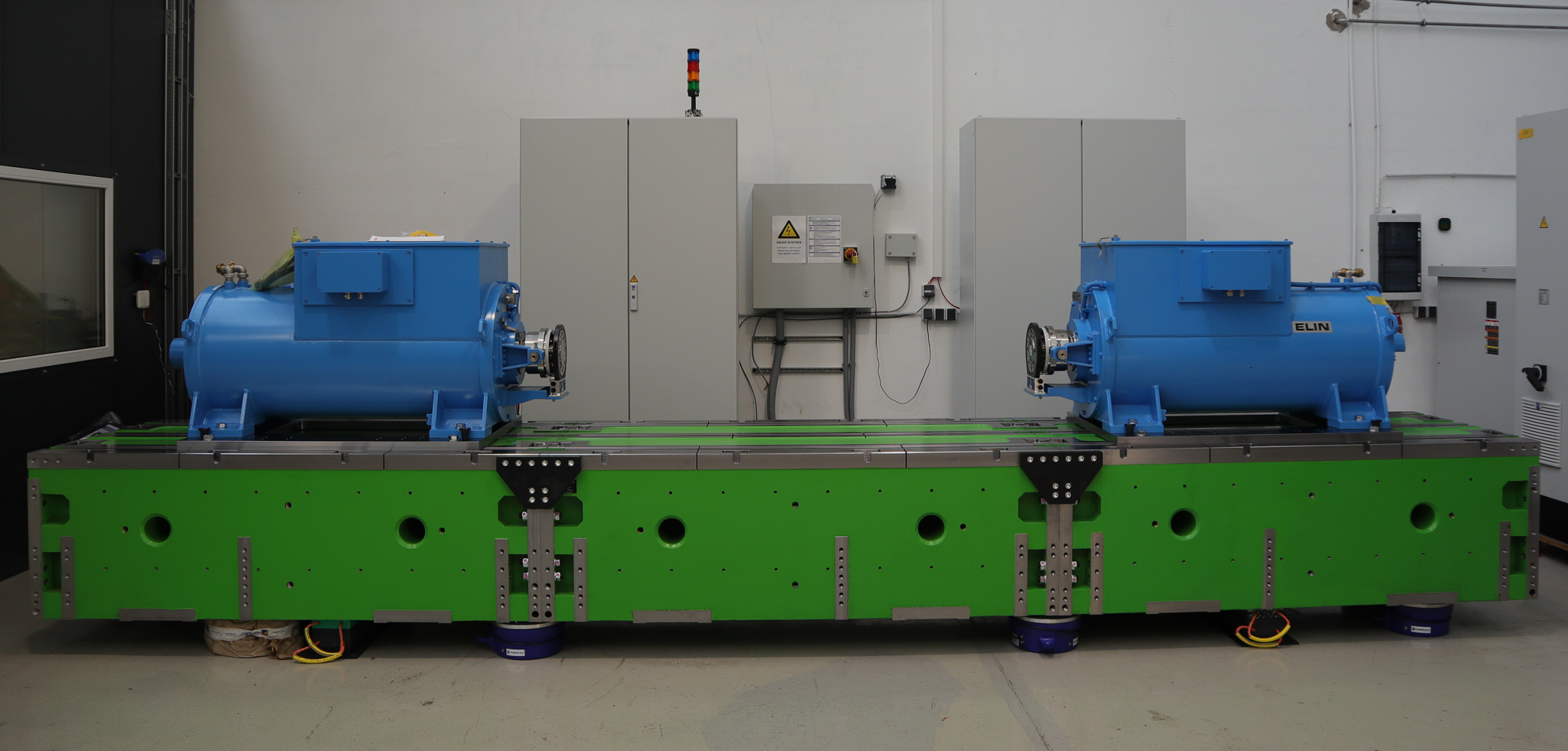Summary
- Profile Type
- Technology offer
- POD Reference
- TODE20250701003
- Term of Validity
- 3 July 2025 - 3 July 2026
- Company's Country
- Germany
- Type of partnership
- Commercial agreement with technical assistance
- Research and development cooperation agreement
- Targeted Countries
- All countries
Contact the EEN partner nearest to you for more information.
Find my local partner
General information
- Short Summary
- A research group at a German University of applied sciences offers expertise in system validation using a top-down validation framework. They operate a powertrain lab with advanced test rig development and operation and are seeking EU partners for R&D on cognitive machines, digital twins, brake emissions, H2 combustion, and modern product development. Cooperation could be under a Horizon Europe research project or through a bilateral technical or outsourcing agreement.
- Full Description
-
The German University of applied sciences is a leading technical university, and is home to the Institute for Product and Service Engineering (IPSE) including the Powertrain and Machine Validation Laboratory (PMVL). The methodological top-down system validation framework applied by the group systematically integrates physical and virtual testing across different abstraction levels, from single components to full systems, and is tailored to the demands of modern, simulation-driven product development.
The group combines expertise in drivetrain technologies, NVH (noise, vibration, harshness) analysis, test rig automation, sustainable mobility, and intelligent validation strategies and is currently involved in several national and international R&D project initiatives. Activities include the development of emissions-reduced brake systems in the context of Euro 7 regulations focusing on simulation, testing, and validation methodologies, as well as the development and validation of low-noise, high-efficiency electric drive units for application in light-duty commercial vehicles.
Additionally, battery systems engineering is a growing field of interest, focusing on model-based monitoring and application-specific battery management system (BMS) algorithms. The research follows a systems approach, starting from the behaviour of individual cells, progressing to battery modules and complete packs, and ultimately addressing integration within the target application. Key aspects include the estimation of critical parameters such as State of Charge (SOC) and State of Health (SOH), which are essential for reliable operation.
The group operates dedicated test rigs for both individual cell characterization and high-power battery emulation, enabling comprehensive validation of models and control strategies under realistic conditions. The close interplay between advanced mathematical modelling and experimental infrastructure ensures the development of robust, application-driven battery solutions.
Research activities also focus on the development of cognitive machines and the application of digital twins. Cognitive systems are designed to perceive, learn from, and adapt to their operational environment, enabling context-aware behaviour and autonomous decision-making in complex scenarios. Digital twin technology is applied particularly in simulation-based validation and predictive system control, allowing for real-time synchronization between physical assets and their virtual counterparts.
In the area of powertrain validation, the test infrastructure is being expanded to include hydrogen combustion systems. This addition enables a broader study of sustainable propulsion technologies and offers new opportunities for comparative studies between electric and alternative combustion systems under unified validation frameworks.
Specific HORIZON EUROPE calls of interest are amongst others: HORIZON-CL6-2025-01-ZEROPOLLUTION-01, HORIZON CL5-2026-01-D2-01, HORIZON-CL5-2026-01-D2-05, HORIZON-CL5-2025-01-Two-Stage-D2-02, HORIZON-CL5-2025-02- D2-06, HORIZON-CL5-2025-04-D5-04.
The team is open to contribute to development, simulation, and experimental validation systems, as well as the coordination of work packages in potential Horizon Europe project collaborations. The group would also be interested in bilateral technical cooperations or outsourcing agreements with partners who are interested in their expertise. - Advantages and Innovations
-
The group operates a newly established powertrain laboratory, featuring a high-performance test rig (250 kW, 11,500 Nm, battery emulation), a high-speed gear test rig, and simulation tools supported by high-performance computing infrastructure. Both test rigs are modular and support extended applications: battery-related testing is enabled via powerful battery emulation for integration into powertrain scenarios (cell test rig also available); hydrogen relevant testing is supported through adaptable rig design and the group's expertise in custom test rig development, allowing future setups for combustion system validation.
Through peer-reviewed publications, conference contributions, and cooperative R&D projects, the group maintains strong visibility in the science and research community. - Stage of Development
- Lab tested
- Sustainable Development Goals
- Not relevant
- IPR status
- No IPR applied
Partner Sought
- Expected Role of a Partner
-
The research group is looking for partners or consortia planning to submit a proposal under Horizon Europe where
they can bring in their expertise in virtual and physical testing and validation of sustainable mobility and energy
systems. This includes:
- Drivetrain Technologies
- Emissions-Reduced Brake Systems
- Electric Drive Units
- Battery Systems
- Cognitive Machines
- Digital Twins
- Hydrogen Combustion Systems
They are also interested in bilateral technical cooperations or outsourcing agreements with partners who are active
in these field and could benefit from their expertise and services - Type and Size of Partner
- SME <=10
- Big company
- Other
- University
- SME 50 - 249
- R&D Institution
- SME 11-49
- Type of partnership
- Commercial agreement with technical assistance
- Research and development cooperation agreement
Dissemination
- Technology keywords
- 02009002 - Hybrid and Electric Vehicles
- 09001005 - Mechanical Technology related to measurements
- 02009012 - Automotive engineering
- 02009027 - Transmission systems
- 02009024 - Powertrain and chassis
- Market keywords
- 03002 - Batteries
- 09001005 - Motor vehicles, transportation equipment and parts
- 08002006 - Numeric and computerised control of machine tools
- 08002004 - Robotics
- 09003001 - Engineering services
- Sector Groups Involved
- Mobility - Transport - Automotive
- Targeted countries
- All countries

